Thomas and Scalia
Will Baude has a new piece in The New Republic (where he’s interning) entitled, Brothers in Law? He expands on a recent blog post, noting that Clarence Thomas is much more of a thinker than he’s given credit for.
Given the widely held perception of Thomas as an unserious justice who leans on Scalia for intellectual guidance, it probably surprised many Court watchers to see the justices parting ways on two key decisions during the last week–yesterday’s decision striking down the Child Online Protection Act and Monday’s decision in Hamdi v. Rumsfeld. But it shouldn’t have come as a surprise at all. That’s because the widely held myths about Thomas are largely false: He is neither a knee-jerk conservative nor Scalia’s yes-man. Rather, he has carved out a distinct jurisprudence as an advocate of textualism, a style of reading laws and constitutions in which words are taken at face value rather than interpreted in historical context or mitigated by practical considerations. There are notable ideological differences between Scalia and Thomas. Scalia, for instance, takes a narrower view of free speech and is less willing to reverse previous Court decisions, even when it is clear that they departed from the original intentions of the Constitution’s framers. Thomas, by contrast, sees himself as a staunch defender of the classically liberal vision of the country’s founders.
***
To be sure, Thomas and Scalia–the Court’s two committed originalists–frequently agree. But this term six other pairs of justices agreed more frequently than they did. Justices Souter and Ginsburg were in complete agreement in 85 percent of the Court’s decisions. Chief Justice Rehnquist agreed with Justice O’Connor in 79 percent and Justice Kennedy in 77 percent. Justices Stevens and Souter agreed 77 percent of the time; so did Justices Ginsburg and Breyer. Thomas and Scalia agreed in only 73 percent of the cases. Thomas regularly breaks with Scalia, disagreeing on points of doctrine, finding a more measured and judicial tone, and calling for the elimination of bad law. Unless he is simply a very bad yes-man, Clarence Thomas is a more independent voice than most people give him credit for.
Interesting.

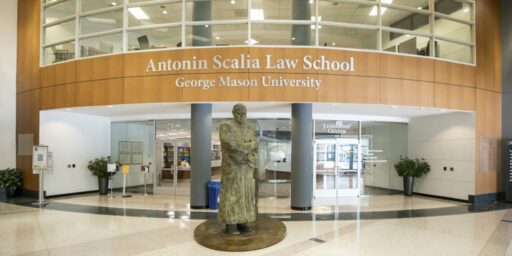
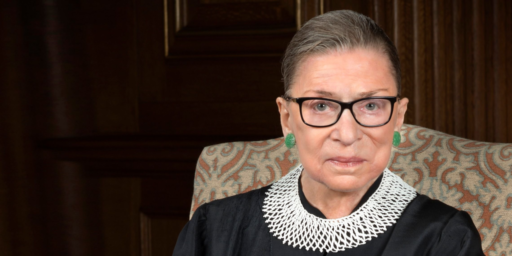
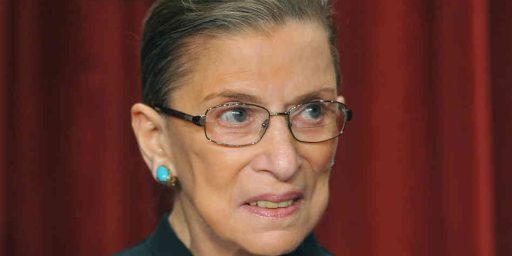
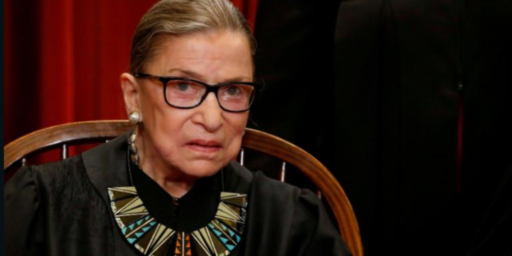
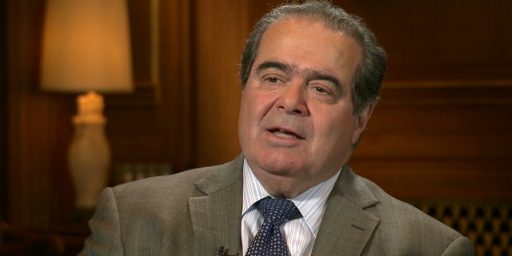
Thomas said as much when I got to speak with him as part of a class visiting Washington earlier this year. He said many people make a big deal out of who votes with who because it’s political, when actually, you have to look at what judicial philosophy the justice is coming from to understand how they vote. He also mentioned that the court really functions more like nine separate courts, rather than a single court. Each justice makes up his mind on his own, and isn’t usually swayed by arguments in conference.
And, yes, he did come off as a much more intelligent, committed individual (but congenial) than he gets credit for in the press.
Baude doesn’t mention it in his not-nearly-long-enough piece, but Thomas has been slowly ammassing a body of dissents during his time on the Court that builds a fairly solid starting point for reviving the BNecessary & Proper Clause from it current moribund, dead letter status. It’s fairly exciting stuff for an orignalist law geek like me (but then again, so ar Scalia’s often delicious dissents; which is to say, I rather like them both).